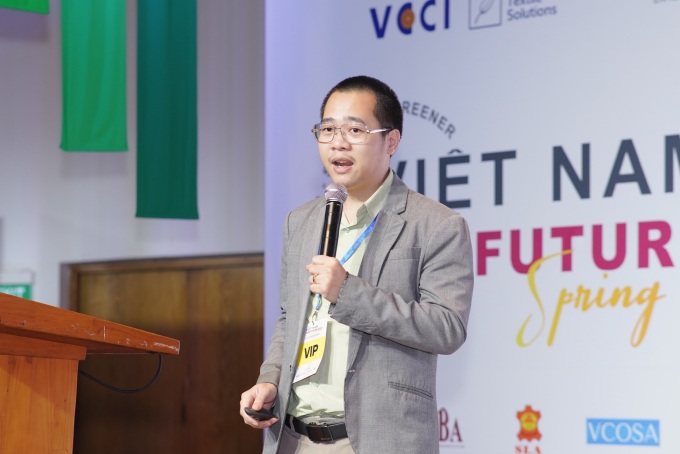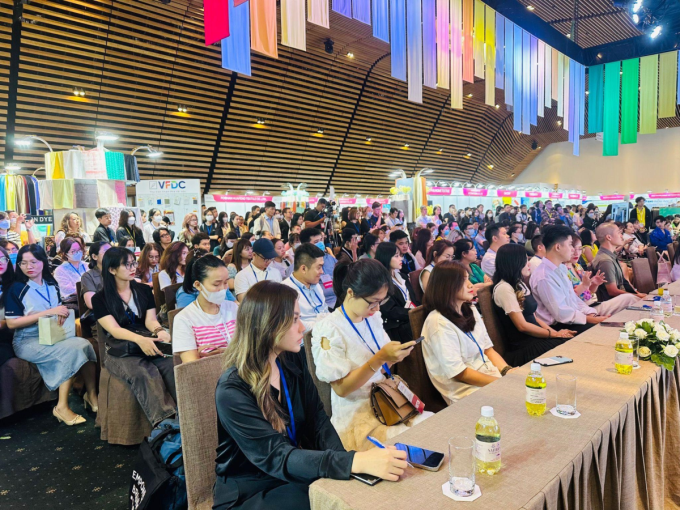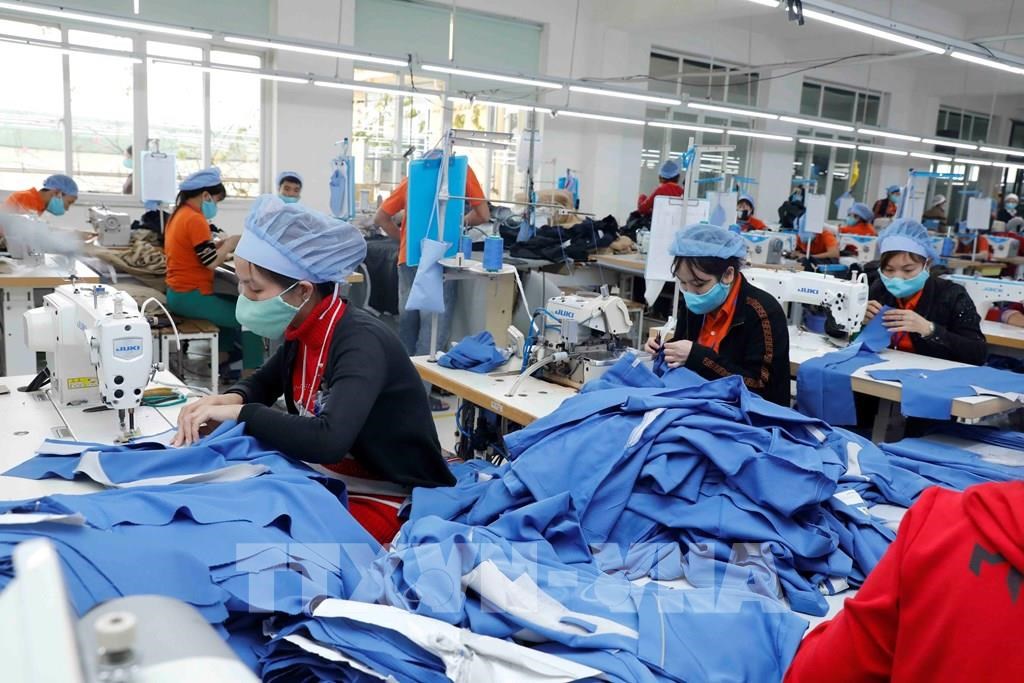Sun, 19/03/2023
Potential application of NFT in the textile industry
According to experts of DTS Group, NFT can be assigned to textile products to increase value, trace the origin, create exclusive versions.
This is the assessment of Mr. Phan Minh Dat - representative of DTS Group, Vice President of Sustainable Blockchain Development Club (VINASA) at the International High-class Fabrics Exhibition - Texfuture Vietnam 2023, at the end of March in Ho Chi Minh City. Mr. Dat said that the combination of blockchain technology and the fabric manufacturing industry opens up many potentials and opportunities. These technologies make it easier to trace the origin, authenticity and management of fabric products.
With NFT - a typical technology of blockchain, when assigned to products, it can help manufacturers strictly monitor the end-to-end process. Technology ensures authenticity and quality of goods. Monitor production processes, manage material volumes and deliver products.

Mr. Phan Minh Dat – Representative of DTS Group, Vice President of Sustainable Blockchain Development Club (VINASA). Photo: DTS
Mr.Dat said that blockchain application brings the fashion industry to a new stage. Because of its authenticity and uniqueness, NFT can help protect designers' intellectual property rights, increase value, and track usage for fashion products. "This opens up opportunities for businesses in the industry to develop and enhance their product manufacturing, management and marketing processes. It also represents the ownership and right to customize fabric products," said Mr. Dat. share.
In addition, NFT helps to validate the exclusivity of limited products, protecting brands from counterfeiting and unauthorized copying. Each product can be assigned a unique NFT, which will make it more difficult to produce counterfeits. "By using identifiers, customers can verify product authenticity and prevent counterfeit purchases. It also allows brands to deal with product duplication and distribution. their products by unauthorized parties", the expert reviews.

Representatives of exhibitors. Photo: DTS
According to Mr. Dat, the difficulty is that this technology is new, which is a challenge for traditional businesses in accessing technology. However, there have been several pioneers developing smart fabric systems using blockchain technology, allowing to track the authenticity and history of products. Each piece of fabric is equipped with an identifier, and is stored using the NFT. "Customers are the beneficiaries when they can trust the product quality and origin. Manufacturers can enhance their brand value and develop the NFT application market," a representative of DTS Group shared.
Texfuture Vietnam 2023, attracting more than 200 exhibitors with more than 1,500 fabric samples on display. Enterprises participate mainly in 7 main areas including: sustainable fashion fabrics, fashion fabrics of all kinds, functional fabrics, industrial parks and circular economy, technology - information and textile solutions sewing, cotton materials, household goods – accessories and materials
vnexpress.net



